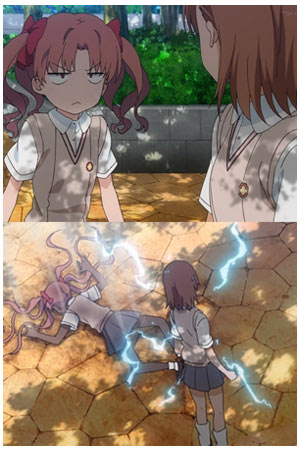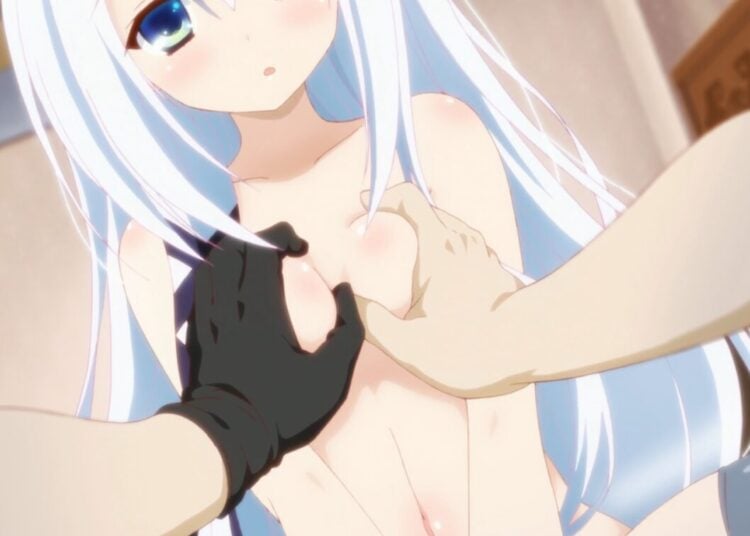All languages use onomatopoeia, words based on sounds, and some examples in English are bark, oink, crash, click, snap, clap, and tick-tock. Japanese uses onomatopoeia, too, and part of the fun of learning the language is discovering how the many sound-based words work, and getting used to cats saying nyan nyan instead of “meow meow.” Many Japanese slang words are based on sounds, for example no one bothers to call “capsule toys” (small toys sold in egg-like capsules in vending machines) by their official name of gashapon; instead everyone refers to them as gacha gacha, which is the sound of turning the handle to make a toy fall down after you’ve deposited your money. Then there’s チン chin! (pronounced cheen, with a long vowel), the sound word for the ding! you hear when microwaved food is done cooking. In a recent episode of A Certain Scientific Railgun Kuroko says something ecchi to Mikoto, who promptly fries her with her signature lightning attack, and this chin! sound is heard to signify that Kuroko is “done being cooked.” The Japanese go beyond English at thinking of creative sound words, into the realm of the “ideaophone,” which are sounds that capture a situation or an abstract idea. For example there’s an onomatopoeia for someone staring intensely (じいいーっ pronounced jiiiiii!), and one for sparkling, as in vampires or stars twinkling at night (きらきら kira kira). Some of these sound words will probably be known to anime fans, like どきどき doki doki, the sound of a rapidly beating heart, and no one who grew up watching Pokemon will be surprised that the sound of lightning crackling is ピカピカ pika pika. If you are interested in Japanese sounds you can now put them in your favorite drink, with cool Japanese sound word ice cube trays.

Pika pika! Kuroko gets 10,000 volts of punishment.















